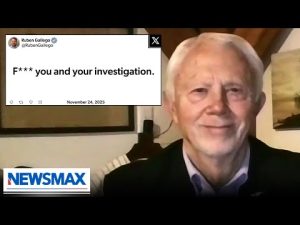In a significant ruling that sent ripples through the tech world, a federal judge determined that Meta, the parent company of Facebook, Instagram, and WhatsApp, is not a monopolistic giant in the realm of social networking. This decision, made by District Court Judge James Booseberg, puts an end to a lengthy legal battle initiated by the Federal Trade Commission (FTC) to challenge Meta’s acquisitions of Instagram in 2012 and WhatsApp in 2014. The FTC had argued that these purchases were anti-competitive moves aimed at stifling competition, but Judge Booseberg disagreed.
Back in 2020, during the Trump administration, the FTC filed this lawsuit, kicking off a series of aggressive legal actions against big tech firms. The central claim was that Meta’s growing empire was monopolizing social networking. However, Meta countered these allegations by highlighting the fierce competition it faces today from platforms like TikTok and YouTube, which have dramatically altered the social media landscape in recent years. With their innovative features and engaging content, these platforms have proven to be worthy rivals vying for users’ attention.
In his ruling, Judge Booseberg pointed out that the competition landscape had transformed considerably in just a few years. He argued that what might have been seen as distinct categories—like social networking and social media—has become increasingly blurred. He noted that the changes in how users interact online have changed so much since the FTC first filed its suit. This change means that the idea of a clear monopoly is no longer as cut and dry as it once seemed.
The judge’s decision is particularly noteworthy given the broader trend of antitrust actions against tech giants that has been gaining momentum in both the Trump and Biden administrations. While the FTC has had notable successes against companies like Google, which was ruled to hold monopolies over search engines and online advertising technology, this setback against Meta shows that not every tech titan will fall under the scrutiny of federal regulators.
In the wake of this ruling, it seems that Meta can breathe a little easier. Especially since its founder, Mark Zuckerberg, has been busy mending fences with political leaders, including President Trump. Zuckerberg’s efforts to engage with governmental concerns and to rebuild relationships in the political sphere reflect the ongoing tug-of-war between tech companies and regulators. Overall, this ruling highlights the complex and often contentious relationship between innovative tech firms and the laws designed to keep competition healthy in the marketplace. As ever, the digital landscape continues to evolve, and it remains to be seen what new challenges lie ahead for Meta and its fellow tech giants.







